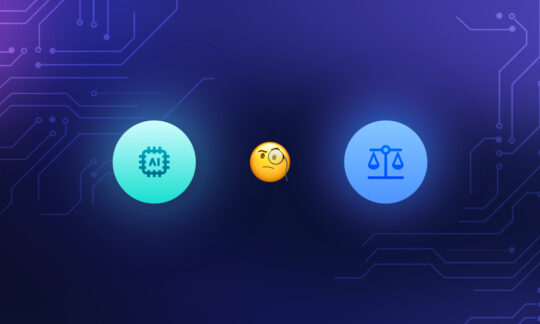Why are AI voice bots the future of customer service?
While simple speech bots have been present on the market for many years, the rise of conversational, AI-powered voice bots is a real gamechanger. SentiOne’s own voicebot algorithm has an unparalleled 96% accuracy rate – which means customer queries can be handled almost entirely without the involvement of human agents.
This brings a question to mind – how are AI voice bots going to influence the way businesses approach customer service? Will customer support automation replace live agents entirely, or will it only help them get their job done more effectively?
We’ve asked 8 experts to share their predictions on the future of customer service and AI voice bots. Here’s what they told us.
8 experts predict how speech bots will shape the future of customer service
#1 Speech bots will become more “humanized” in their interactions
Miranda Yan, Founder at VinPit
As deep learning technology applied to voice AI expands its capabilities, we will see voice assistants becoming more “humanized” in their interactions, moving beyond merely conversational elements based on the user’s voice requests. AI voice bots will better understand the speaker’s mood based on emotional signals. Even more so, they will take advantage of this context to be proactive, anticipate users’ wants, and provide relevant, helpful information, boosting their position in users’ daily lives.
What makes them the future of customer service?
They make astute forecasts, which the modern world craves. They connect with the end-user and extract pertinent information based on their needs using human-like skills. These voice-controlled intelligent assistants can do a lot, such as sending messages or delivering materials depending on the user’s preferences. They’re a lot of fun to use. This draws many individuals, and – as they are updated regularly to meet their needs – they are a truly ground-breaking technology.
#2 AI voice bots will give customers more control over their experience
Simon Elkjær, Chief Marketing Officer oat avXperten
AI-powered voice bots are one of the latest developments that are poised to further improve the quality of customer service. Very much like AI-powered chatbots, they aim to give customers a more convenient and accessible means to ask queries and further improve their overall experience.
This being said, due to speech technology, AI voice bots seek to take things one step further. They can make the entire customer journey more personalized and give the customers more control over their experience. As a result, customer service teams can now work more efficiently, dedicate their time to other tasks, and even hone their skills even further.
Businesses still need to remember to be careful and responsible with how they integrate and use this software for their business. Proper preparation, implementation, optimization, and the right use will help you make the most out of voice bots.
#3 Leveraging the power of data sets and algorithms in customer support
Mrudul Shah, Director / CTO at Technostacks Infotech pvt ltd
AI-based voicebot interactions are on a journey to become transparent, accountable, and more personalized. By adopting a human-like approach, these solutions are evolving to build deeper customer engagement through greater control and consistency.
AI voice bots will change the customer service landscape, as they continuously improve their ability to understand customer context. Paying attention to customer expectations and exceeding them will provide immense value.
This can be done by unleashing the power of data sets and algorithms derived from insights from customer behavior, demographics, geographics, or usage patterns. By using them, speech bots can anticipate what the customer wants next and be ready beforehand.
#4 Customer satisfaction improvements thanks to seamless connections between an AI voice bot and humans
Chris Arnold, Vice President of Customer Experience Strategy at ASAPP
Most voicebots are valuable technologies when used appropriately. However, they are not a panacea. They are a small but important component of a broader ecosystem. For example, rule-based systems underpinning most voice bots can handle simple problems and improve the discoverability of self-service options. In many cases, voicebots can be an entry point to showing the customer what they need to quickly resolve issues (without hold time). For these basic interactions, speech bots have proven helpful but are very limited in reducing the total cost to serve.
A seamless connection between voicebots and human agents is critical to their success. By pairing humans with AI, operational teams can gain real-time voice transcription, analytics, agent journey mapping, and actionable insights to boost the effectiveness of their teams. AI (and, in particular, Natural Language Processing and Automatic Speech Recognition) can automate portions of human agent workflows, as well as learn from effective methods over time.
The future of work will be the confluence of AI, speech intelligence, and human agents to increase productivity and customer satisfaction.
#5 Customer support automation via speech bots will improve responsiveness and boost CX
Gideon Rubin, CEO at Pandio
Studies have found that customers prefer to speak to a customer representative instead of writing down their questions, because some are unable to read smaller fonts properly. This is where AI voice bots will change the customer service landscape in the years to come.
Most importantly, customers won’t have to wait for the customer service representatives to become free for another call and speak to them. They’ll also be able to dial in at any time of the day, without any restrictions of the office hours.
#6 AI voice bots will lower customer service contact rate
Israel Gaudette, Founder at Link Tracker Pro
With AI-powered voice bots, customer service contact rates will no longer hinder businesses to optimize their resources. Lots of support agents will be freed up to dedicate more of their time to complex and urgent issues. Speech bots will be the ones responsible for screening calls: with AI, they’ll know when to escalate a call and pass it to a human agent.
Voice bots will be a game-changer in the future and will augment most businesses’ communication strategies. Poor customer satisfaction will no longer take a toll on business owners. Customer service teams’ backlogs and long call queues will be gone. With voice bots, more personalized interaction with customers will become commonplace.
#7 Eliminating inefficiencies and lowering costs
Dr. Sanju Kunwar, Co-Founder at AgFunnel
I’ve been using AI voice bots for blogs and business for over a year now. It’s a huge time saver and a great way to eliminate inefficiencies, enabling 24-hour customer service, and aiding callers.
One of the most important goals for many customer service organizations is consistency – everyone should have access to the same level of care regardless of time zone or each day’s call volume. AI voicebots are able to provide this by functioning even when there are no agents available to help customers, or outside of business hours.
AI Voicebots will also make for a more personal and interactive customer service experience. The biggest difference is that customers can talk as much as they want with an AI voicebot without feeling like they are wasting somebody’s time. In other words, it won’t look like the customer is being “hung up” on if there’s a long pause between messages – a common occurrence when speaking to an agent – while waiting for the next question to come up!
A nice touch, however, would be providing human contact information so people always have someone to call back, should they need such assistance.
#8 Shift from text to voice caused by millennials
Edward Mellett, Founder/Co-Founder at WikiJob
Because of the rise of voice technology, our company uses voice bots. The changing user demands are credited as the primary cause of the shift to speech UI. Millennials in particular show a greater understanding of speech technology and a better level of familiarity with it. The widespread use of artificial intelligence in our daily lives is also contributing to the voice trend. Voice assistants are becoming more valuable in the everyday lives of connected users as the number of IoT devices such as smart appliances and speakers grows.
The rapid advancement of speech and voice recognition technologies has piqued the interest of several major corporations, including Google, Apple, Microsoft, Amazon, and others. Many companies and businesses are eager to communicate with customers—and also allow them to make purchases—via speech-enabled devices because of the convenience of using simple voice commands to acquire information. Voice bots will also have a significant impact on the whole customer experience in the future, as evidenced by the growing popularity of voice search and how users find and act on information.
Summary
The shift from basic speech bots to conversational AI voice technology is a true revolution for client-facing teams. As revealed by our experts, voice bots are set to relieve live agents from call steering, answering frequent questions, and handling simple requests which can be managed by a voice assistant.
While some of us might worry that customer support automation will push client service jobs into extinction, it’s our opinion that it won’t be the case. Rather, we can expect customer support agents to be moved to tasks where human-to-human attention is irreplaceable, and giving them more time to provide quality care.



